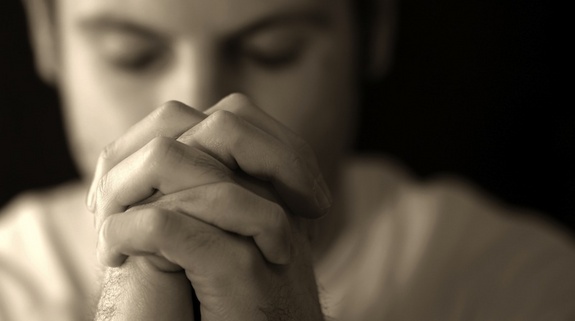Autism May Diminish Belief in God

People who have more traits of autism are less likely to believe in God that those that do not have such traits, according to new research that suggests that belief is boosted by the ability to see into the minds of others.
This ability, often called theory of mind, or mentalizing, is diminished in people with autism spectrum disorders, a cluster of conditions marked by communication and social difficulties. Because people's beliefs in God are often marked by feelings of having a personal relationship with the deity, prayer and worship may require a sense of what God could be thinking, researchers report Wednesday (May 30) in the journal PLoS ONE.
"Believers intuitively treat gods as intentional agents with mental states who enter into social relationships with humans, using supernatural powers to assuage existential concerns, respond to human desires and monitor their social behavior," the scientists wrote.
Getting personal with God
Brain imaging studies have shown that when people think about God or pray, it activates areas in the brain crucial for theory of mind. Likewise, as children grow and get better at imagining other people's thoughts and motivations, their explanations for God's thoughts and motivations keep pace, according to research published in 2010 in the journal Child Development. [8 Ways Religion Impacts Your Life]
University of British Columbia psychologists Ara Norenzayan and Will Gervais, along with their University of California, Davis colleague Kali H. Trzesniewski, wondered if having autism, which interferes with theory of mind, might influence people's religious beliefs. They began with a small study of 12 children with autism and 13 kids without the disorder from the same neighborhood, matched on characteristics such as age, gender and family religion. They found that the youth with autism were only 11 percent as likely as their neurotypical counterparts to say they strongly believed in God.
Autism — and people's ability to empathize with others' thoughts and feelings — runs along a spectrum, so next, the researchers turned to a sample of 327 Canadian college students to see if more autismlike traits (but not a clinical diagnosis) might be related to belief in God. The students filled out online questionnaires about the strength of their belief as well as a survey designed to place them on the autism spectrum. This survey, the Autism Spectrum Quotient, asks participants to agree or disagree with statements such as, "I find social situations easy," and "I prefer to do things the same way over and over again."
Sign up for the Live Science daily newsletter now
Get the world’s most fascinating discoveries delivered straight to your inbox.
The students also filled out surveys regarding their ability to empathize with others and their ability to systematize, or reason about mechanical and physical objects and processes (an engineer would likely be good at systemization, for example).
Believers and disbelievers
The study found that the higher the autism score, the less likely the person was to believe in God, with the link partially explained by theory of mind. In other words, the better someone felt at understanding other's minds, the more fervent their belief in God.
The researchers repeated the experiment twice in American adults, with slight variations in the sorts of questions asked. In two separate nationwide samples, one with 706 participants and one with 452, they again found that autistic traits decreased belief. In both studies, theory of mind explained the differences between believers and nonbelievers. These samples were not nationally representative, but did include a broad array of beliefs and cultural backgrounds.
These studies are correlational, so researchers can't say for sure whether an inability to imagine other minds actually leads to atheism or agnosticism or whether the link is caused by something else. The researchers did control for religious service attendance, assuming that the socially inept might be less likely to flex their mentalizing muscles by mingling at church each week. That analysis showed that religious service attendance could not explain the link between autismlike traits and belief.
The researchers are quick to note that other factors, including culture and a tendency toward analytical thinking, play a role in whether someone becomes a believer or an atheist. But they suggest that the new research might hint at why women are more likely to believe in God than men.
According to a 2007 survey of Americans, 77 percent of women believe in God with absolute certainty, compared with 65 percent of men. On average, men are less adept at theory of mind than women, studies have shown. And in the current study, men generally scored lower than women on this ability as well, an effect that translated to fewer men with strong religious beliefs.
The reasons for this gender gap are hotly debated, Norenzayan and his colleagues wrote, adding, "Our findings contribute to this debate by providing an important and previously overlooked psychological explanation for the overrepresentation of men among disbelievers."
You can follow LiveScience senior writer Stephanie Pappas on Twitter @sipappas. Follow LiveScience for the latest in science news and discoveries on Twitter @livescience and on Facebook.

Stephanie Pappas is a contributing writer for Live Science, covering topics ranging from geoscience to archaeology to the human brain and behavior. She was previously a senior writer for Live Science but is now a freelancer based in Denver, Colorado, and regularly contributes to Scientific American and The Monitor, the monthly magazine of the American Psychological Association. Stephanie received a bachelor's degree in psychology from the University of South Carolina and a graduate certificate in science communication from the University of California, Santa Cruz.









